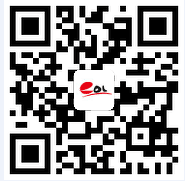北京邮电大学网络教育入学测试专升本英语模拟题及答案(完形填空2)
第三部分:完型填空(2)
(五)
When people in North American meet __1_ the first time, they do not talk about things that are personal. Some subjects are __2_ and it is not polite to ask people about them. People talk about theirfamilies, __3__ they don’ttalk about why they aren’tmarriedor why they don’thave children.
The way you begin a conversation can be polite or _4___ too. Try not to interrupt a person who is reading or working. If something is very important and you ___5__ interrupt, you can say, “Excuse me.”
When two people meet in public, one doesn’task questions ___6__ why the other person is there or what other person is doing. These questions are not __7__ as friendly. They are probably seen as nosey.
People ask each other about _8___ health, but it isn’tpolite to probe into details. People often ask about theirjobs, but they don’ttalk about theirsalaries. ___9__ topics include weather, sports and holidays. Topics __10__ are politics, personal details and religion.
1. A. with B. for C. cross D. into
2. A. bad B. good C. confusing D. private
3. A. and B. then C. but D. later
4. A. kind B. impolite C. silly D. boring
5. A. have to B. must C. ought D. should
6. A. about B. on C. for D. of
7. A. looked B. believed C. seen D. see
8. A. his B. their C. him D. them
9. A. Safe B. Unsafe C. Terrible D. Interesting
10. A. avoid B. to avoid C. avoiding D. to be avoided
(六)
In the eighteenth century, cities ___1__ larger and larger. People moved from the countryside and small towns to the ___2___ because there was ___3__ work for them to do in the cities.
On Sundays and holidays, they liked to __4__ the cities and havea good time in the countryside. But not every___5__ had a horse or a wagon(马车). People needed a simpler means of transportation. __6__ in many countries tried to solve the problem.
The first bicycle, which was very simple, ___7___ in 1790. people called “the horse on wheel”. Then in 1861, after many improvements being made, the bicycle became a practical ___8__ of transportation.
People liked bikes because they weren’t as __9__ as horses and didn’tneed to be fed. They could go anywhere and were easy to __10___.
1. A. become B. became C. change D. changed
2. A. cities B. countryside C. towns D. villages
3. A. many B. much C. more D. lots
4. A. come to B. reach C. go away D. leave
5. A. family B. house C. home D. people
6. A. Workers B. Inventors C. Teachers D. Drivers
7. A. invented B. appeared C. made D. produced
8. A. mean B. way C. means D. ways
9. A. cheap B. easy C. difficult D. expensive
10. A. ride B. drive C. get on D. buy
(七)
Woodsman, hunters and trackers learned to follow and read the informationleft behind by animals, men, nature and time. Theirability to survive depended on their skills in ___1__ these signs. Soon they reasoned that if signs left behind accidentally had ___2_, they could leave signs deliberately(故意) for their___3__ future use or for the benefit of __4__ following them. __5__ trail signs and symbols ___6_ and soon became ___7__ standardized. Ahunter in a forest hacked(砍) pieces of bark(树皮)off some of the trees in his path so that he could find his way back or so that others could follow him. Woodsman often made a cut on ___8_ of the tree so that the trail could be seen from __9___ direction and from either side of the tree, trackers chipped from one side only, and then trails were ____10__ to follow.
1. A. writing B. reading C. drawing D. looking
2. A. color B. so much color
C. so many meaning D. so much meaning
3. A. animal’s B. own C. men’s D. nature’s
4. A. friends B. woodsman C. hunters D. trackers
5. A. And B. But C. Thus D.Then
6. A. has come into being B. has come into been
C. came into being D. came into been
7. A. more than B. less than
C. more and less D. more or less
8. A. both side B. both sides C. all sides D. every side
9. A. either B. neither C. each D. one
10. A. easier B. clearer C. harder D. cleaner
(八)
Last June my brother __1__ a car. He __2_ an old bike before, but it __3__ several times during the spring. “What _4__ want is a second-hand Mini,”I suggested. “If you give me the money,”he said, “__5_ one tomorrow.”“I can’t give you the money,”I replied, “but what about Aunt Myra. She must have enough. We __6__ her since Christmas but she always hints that we __7__ go and see her more often.”
We told our parents __8__ we were going. They weren’t very happy about it and asked us not to go. So __9__. But later that same day something strange __10__. A doctor __11__us that Aunt Myra __12_ into hospital for an operation. “_13__ go and see her at the same time,”said my mother. “You two go today, but don’tmention the money.”
When we _14__, Aunt Myra__15__. “I’m not seriously ill,”she said, “but the doctor insists that __16_ to drive my car. You can have __17__ if you promise _18__ me to the seaside now and again.”We _19__, and now we quite enjoy our monthly trip to the __20_ with Aunt Myra.
1. A. wanted to buy B. wanted buying
C. liked to buy D. liked buying
2. A. had B. had had C. has had D. has
3. A. was breaking down B. was breaking up
C. had broken down D.had broken up
4. A. I B. you C. we D. he
5. A. I get B. I’m getting
C. I’m going to get D. I’ll get
6. A. are not seeing B. haven’tseen
C. didn’tsee D. don’tsee
7. A. should B. shall C. would D. will
8. A. where B. when C. why D. how
9. A. that we haven’tB. that we didn’t
C. we haven’t D. we didn’t
10. A. occurredB. took the place C. passed D. was there
11. A. rang for telling B. rang to tell
C. rung for telling D. rung to tell
12. A. had gone B. had been C. has gone D. has been
13. A. We may not all B. We cannot all
C. All we cannot D. All we may not
14. A. have come there B. were arriving
C. got there D. came to there
15. A. was seeming quite happily B. was seeming quite happy
C. was seeming quite happily D. seemed quite happy
16. A. I’m getting so old B. I’m getting too old
C. I get so old D. I get too old
17. A one B. it C. some D. my
18. A. taking B. bringing C. to take D. to bring
19. A. refused B. smiled C. agreed D. received
20. A. city B. house C. coast D. hill
答案:
(五)
1-5: BDCBA
6-10: ACBAD
(六)
1-5:BACDA
6-10: BBCDA
(七)
1-5: BDBAC
6-10: CDBAC
(八)
1-5:ABCBD
6-10:BAADA
11-15:BABCD
16-20:BBCCC
推荐查看:
远程/电大有疑问、不知道如何选择主考院校及专业、不清楚远程/电大当地政策,点击立即了解>>
考生对于远程教育有任何疑问可以通过点击加入以下qq群 进行交流。群成员专享:进群和老客交流,第一时间掌握远程最新资讯和动态信息。
进行交流。群成员专享:进群和老客交流,第一时间掌握远程最新资讯和动态信息。
扫一扫以下二维码关注中国教育在线官方微博,这里第一时间发布最新自考、成考、远程考试热点信息。

二)本网站在文章内容来源出处标注为其他平台的稿件均为转载稿,免费转载出于非商业性学习目的,版权归原作者所有。如您对内容、版权等问题存在异议请与本站联系,我们会及时进行处理解决。



 您现在的位置:
您现在的位置:
 查看自学考试最新资讯
查看自学考试最新资讯













